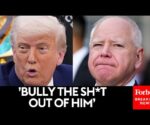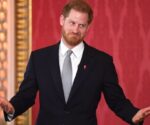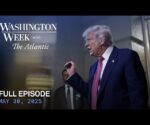RCP Podcast: Courts Challenge Trump Tariffs, MAGA TV Diplomacy, Politics of U.S. Steel/Nippon Deal
Thursday on the RealClearPolitics radio show — weeknights at 6:00 p.m. on SiriusXM’s POTUS Channel 124 and then on Apple, Spotify, and here on our website — Andrew Walworth, Tom Bevan, and Carl Cannon talk about the biggest stories in American politics today. *** In the first segment, the U.S. Court of International Trade ruled that President Trump overstepped his authority when he used the Emergency Economic Powers Act to justify his tariff policy. “The markets loved it, but there is still some uncertainty until this gets ultimately resolved,” Tom Bevan said. Also along those lines, a Boston-based judge extended her block of the administration’s order to stop Harvard from enrolling foreign students. “It’s starting to become a pattern where judges just routinely discard President Trump’s orders,” Carl Cannon commented. “There are two conclusions you can draw from that. One is that he is doing all sorts of extra-legal things, so they have to rule on the merits. The other is that the courts are flexing their muscles, and you have unelected judges, appointed for life, thwarting the agenda of a popularly elected president.” *** In the next segment, starting at timestamp 11:30, President Trump’s latest pardons are drawing criticism, especially that of Paul Walczak, a nursing home executive convicted of stealing $ 11 million in payroll taxes and whose mother contributed more than $ 1 million to the Trump campaign. Is that as bad as it looks? Does it compare to some of the most egregious pardons in past administrations? “He hadn’t even been sentenced yet, and Trump pardoned him,” Cannon said. “But he paid all the money back,” Tom Bevan adds. “I’m not sure we have the full details on all of these.” *** In the next segment, starting at minute 19, they mull over NPR’s lawsuit against the Trump administration, claiming efforts to pull federal funding abridge the broadcaster’s right to free speech. Are they on firm legal ground? “No, they’re not,” Carl Cannon explained. “NPR’s complaint called the desire to cut off federal funds ‘a blatant and textbook first amendment violation.’ As a federal judge said a few weeks ago in a related case, the government does not abridge the right to free speech by choosing not to subsidize it.” He concludes: “NPR’s position is untenable on its face. Once you get federal money, it can never be taken away? Taxpayers are forced to pay this for eternity?” *** After that, starting at minute 23, Carl Cannon talks to “National Journal” White House correspondent George E. Condon about President Trump’s habit of inviting foreign leaders to the Oval Office to spar in front of the press. “The scene is so strange,” he explained. “To begin with, Trump has so tricked up the Oval Office that it doesn’t look like any Oval Office we’ve ever seen. He’s added so much gold, trinkets and gilt, on everything. There are so many knick-knacks around, like his model of Air Force One, as he wants to see it.” “And then he’s had 13 world leaders in, and there’s no precedent for the way he treats them.” “The old system was preferable if you wanted to move something diplomatically. The current system is good if you want to score points for domestic politics. Far from just taking a couple of questions-I counted up the questions they have taken at these meetings: it’s 338 questions in 13 meetings.” *** Finally, starting at minute 34, Andrew Walworth talks with Guy Ciarocchi, a contributor to RealClearPennsylvania and senior fellow at the Commonwealth Foundation, about President Trump giving final approval to the merger between Nippon and US Steel. Walworth asked: “This is a merger that was opposed by both Donald Trump and Joe Biden during the campaign. Now it’s endorsed by Trump and by your Democratic governor, Josh Shapiro. So, what changed to make this deal so popular?” “One thing is it’s crystal clear that the business is going to receive an enormous multibillion-dollar investment in upgrading, which indicates that this is not a short-term fix. This is a long-term investment-we’re going to be making steel in Pittsburgh for decades, if not longer,” Ciarocchi said. “And I think the clear understanding that it will be American management and American leadership that will be driving the production of it. So we have more money, permanent jobs, and American management. That makes it an excellent deal.” They also brainstorm Pennsylvania Gov. Josh Shapiro’s chances for winning the Democratic presidential nomination in 2028. “My sense of him as a candidate for governor and now as governor is that he tries to keep one foot planted in the progressive lane and one foot planted in the moderate lane. He’s riding on two skis and hoping he doesn’t hit a tree,” Ciarocchi said about Shapiro. “As we say, he wears a Brooks Brothers suit but doesn’t wear a tie. That sort of embodies who he is.” *** Don’t miss a single episode of the RealClearPolitics weeknight radio show – subscribe at Apple, Spotify, or wherever you listen to podcasts.
RealClearPolitics Videos









